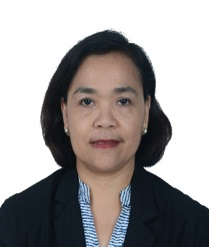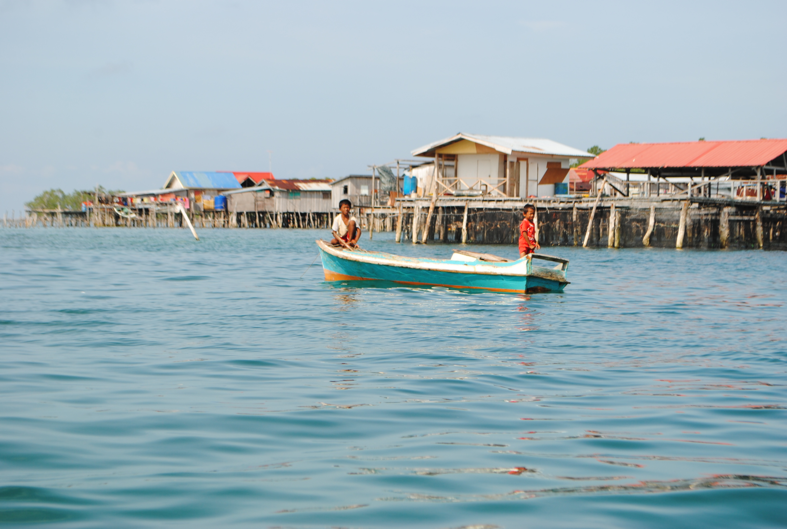Memo #367
By: Linda A. Lumayag – llumayag [at] um.edu.my
 The multi-decade migration of Filipino refugees from the Philippines to Malaysia has important implications for human rights and citizenship. This movement and settlement processes have spotlighted issues regarding the rights of undocumented and multi-generational refugee communities. A protracted war between Muslim separatists and the government of the Philippines triggered waves of migration during the 1970s and the 1980s into the state of Sabah. Although the numbers have dwindled since the peak years, undocumented migration to Sabah continues to this day. However, drastically curtained rights have made these communities increasingly vulnerable and bereft of any level of human rights protection.
The multi-decade migration of Filipino refugees from the Philippines to Malaysia has important implications for human rights and citizenship. This movement and settlement processes have spotlighted issues regarding the rights of undocumented and multi-generational refugee communities. A protracted war between Muslim separatists and the government of the Philippines triggered waves of migration during the 1970s and the 1980s into the state of Sabah. Although the numbers have dwindled since the peak years, undocumented migration to Sabah continues to this day. However, drastically curtained rights have made these communities increasingly vulnerable and bereft of any level of human rights protection.
Children of refugees have been the most negatively affected by government laws towards unskilled and undocumented migrants. In the 1980s and 1990s, the Malaysian government allowed children of refugees to attend school and at minimum receive basic education. The amendment of Education Act 1996 (Act 550) in 2002, however, barred undocumented non-citizen children from registering in government-aided schools. Thus, these children, many now in their 20s and 30s, have been unable to move on with their lives, struggling without access to education. The consequent issues with literacy and basic skills in turn deprive the refugees from decent-paying, steady, or skilled work. Thus, the refugee children have become a cheap source of labor in oil and rubber plantations, domestic workers in middle-class households, or odd-job laborers in small towns and villages. The lack of education and employment opportunities also makes them subject to depiction by the government as merely potential threats to social stability and border security.
Furthermore, refugee children suffer from other restrictions to their basic rights. For example, Filipino refugees with IMM13 cards (issued to refugees and their children) do not have the right to travel outside Sabah. Malaysian immigration law also bans unskilled and undocumented workers from marrying in the country and thus having legally certified families.
Despite these deprivations, the refugee children know Malaysia as their only homeland. They are involved in local community issues, especially environmental protection, but are exploited as cheap labor without protection by industries. There are an estimated 100,000 plus undocumented children in Sabah (and most born there) who currently make do with the educational services provided by NGOs such as PKPKM Sabah. The absence of basic human rights, such as access to education, triggers a chain of effects that threaten the futures of these children.
About the Author:
Linda A. Lumayag is Senior Lecturer at the Department of Southeast Asian Studies, Faculty of Arts and Social Sciences, University of Malaya, in Kuala Lumpur, Malaysia. Her main research interests are undocumented children in Southeast Asia with a special focus on Philippines, Indonesia and Myanmar; transnational domestic workers; cross-border marriages; coastal communities; and, ageing and migration.

Undocumented children of Sabah, Malaysia (Credit: Linda A. Lumayag)
Links
- Linda A. Lumayag, “A Question of Access: Education Needs of Undocumented Children in Malaysia” Asian Studies Review, June 2016, doi: 10.1080/10357823.2016.1158238 (forthcoming).
- Linda A. Lumayag, “Marriage “During” Work Migration: Lived Experiences of Filipino Marriage Migrants in Malaysia,” in Marriage Migration in Asia: Emerging Minorities at the Frontiers of Nation-States, edited by Sari K. Ishii. (Kyoto: National University Singapore Press and Kyoto University Press), 2016.
- Heng Cheng Chee, “International marriages in Malaysia: Issues arising from state policies and processes,” in Changing marriage patterns in Southeast Asia: economic and socio-cultural dimension, edited by Gavin W. Jones, Terrence H. Hull, Maznah Mohamad (London: Routledge, 2011), 185-201.
- Amarjit Kaur, “Managing labour migration in Malaysia: Guest worker programs and the regularisation of irregular labour migrants as a policy instrument,” Asian Studies Review, 38, no. 3 (2014): 345–366.
- Kamal Sadiq, “When states prefer non-citizens over citizens: Conflict over illegal immigration into Malaysia,” International Studies Quarterly, 49, no. 1 (2005): 101-122.
- Tracey Skelton, “Geographies of children, young people and families in Asia,” Children’s Geographies, 10, no. 4 (2012): 473–479.
- Malaysian Government, Laws of Malaysia Act 155, Immigration Act 1959/63, Incorporating all amendments up to 1 January 2006.
- PKPKM Sabah – Society for Education of underprivileged Children in Sabah.
Related Memos:
See our other memos on Malaysia.